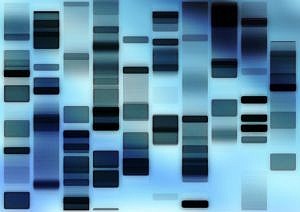- November 25, 2024
-
-
Loading

Loading

If an evening of brain-stimulating, horizon expanding discourse sounds like fun, then Whitney Labs has something for you. The lab begins this season’s public lectures series, “Evenings at Whitney,” tonight, 7 p.m. Sept. 15.
The first topic is “Your DNA, your medicines and you,” with Dr. Julie Johnson, from the University of Florida.
These science lectures have topics of interest to the general public. You don’t have to take notes, and the audience quizzes the lecturer afterwards, not vice versa. Best of all, they’re free!
When I learned about this lectures series last season, I suspected the lectures might be dry, boring or delivered with an intimidating vocabulary. But, I decided to stretch my mind, broaden my worldview, and check one out.
I didn’t expect a traffic jam on Highway A1A as people arriving to attend the lecture slowed traffic down to 20 mph. Jockeying for a parking spot, I noted attendees walking toward the lecture hall: singles and couples ranging from middle-aged into retirement, with a few college students and a group of four in their late teens carrying notebooks.
The lecturer topic that evening was the Deep Water Horizon Gulf oil spill of 2010, and it was fascinating! We learned that we were lucky the oil didn’t ride the gulfstream literally onto Flagler County’s beaches.
But, we lost any sense of luck as the lecturer showed us samples of what looked like clear, clean water from the Gulf of Mexico, and then showed us the results of the chemical analysis on those same samples: full of microscopic oil, invisible to the naked eye.
Next, he showed evidence that a fine mist of oil particles had rained down onto the sea floor in the Gulf of Mexico and accumulated, much like snow accumulates in farmer’s fields during northern winters.
He discussed initial results from studies on the oil spill’s impact on sea life, and whether or not we should feel comfortable eating seafood from the Gulf of Mexico. Lastly, he challenged us to stay involved, to become vigilant watchdogs.
The speaker was dynamic, engaging, and not at all intimidating. He didn’t speak over our heads, but neither did he dumb it down. He didn’t come across as an eco-maniac, but instead as someone carefully examining forensic evidence.
I left the evening with new knowledge, imbued with concern for the ecosystem, balanced with hope, and with a commitment to become more involved. Part of that involvement includes attending this season’s lecture updating us on the status of the Gulf oil spill’s impact.
Access to world-class expert scientists and researchers is a benefit of having Whitney Labs as a neighbor. Take advantage of it for free at 7 p.m. the third Thursday of every month with Evenings at Whitney.
Whitney Laboratory for Marine Bioscience, part of the University of Florida, is located on the A1A at the border of Flagler and St Johns counties. For information about the “Evenings at Whitney” lectures, visit http://www.whitney.ufl.edu/lectures.htm . Lectures and parking are free; the venue is casual.
P.S. DNA stands for deoxyribonucleic acid.